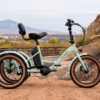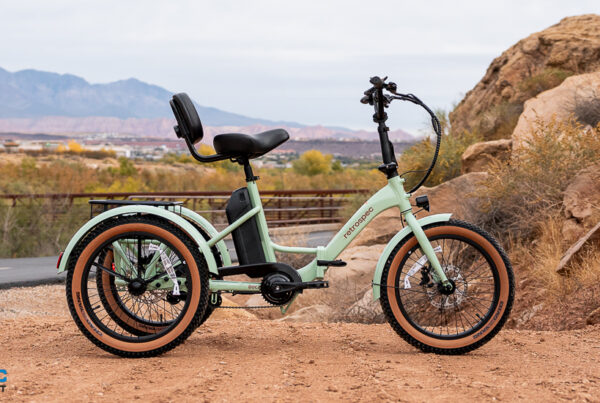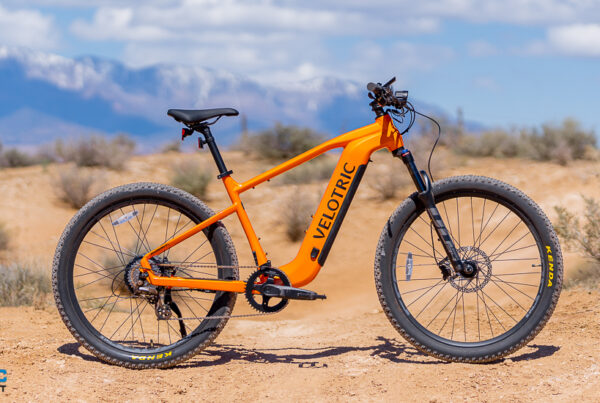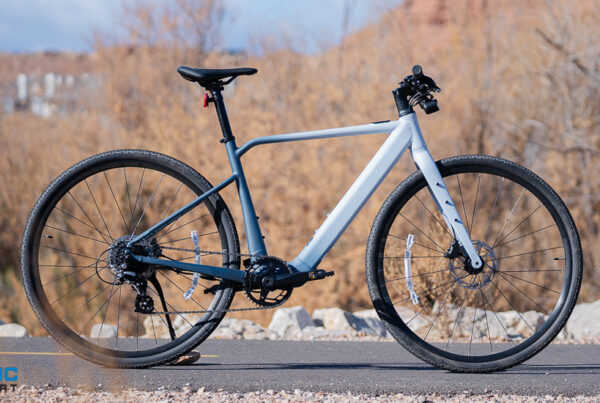Some links may be affiliate links. We may get paid if you buy something or take an action after clicking one of these.
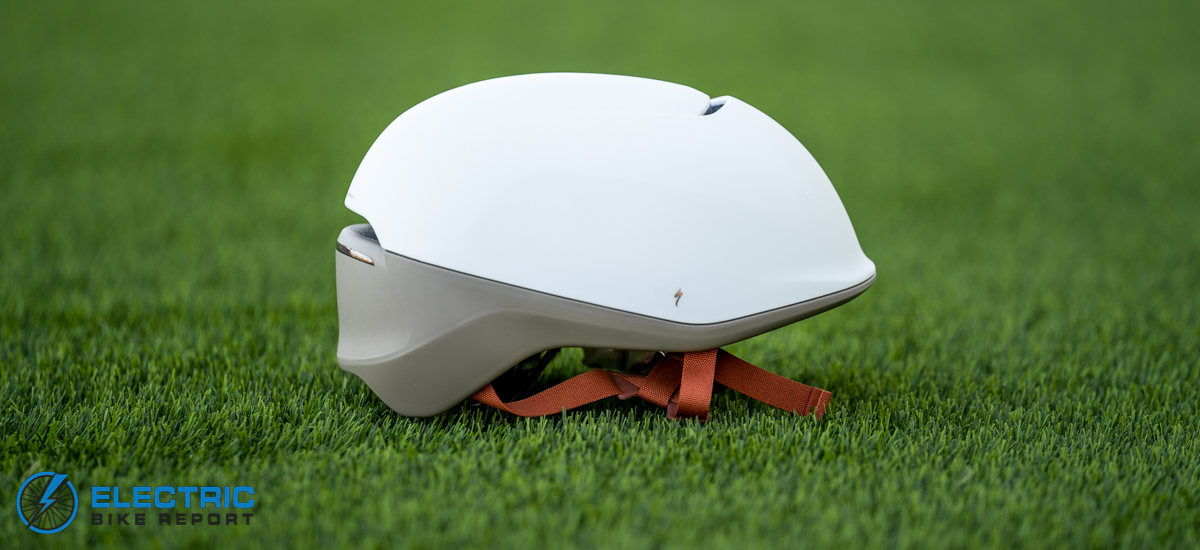
With its understated look, the Specialized Tone helmet is the sort of helmet that could coax the reluctant into donning a skid lid. The Tone hits a terrific price point (
Whether you’re an e-bike rider, or still riding traditional bikes, the Tone is a stylish option worth considering. It’s become the daily use helmet for one of the Electric Bike Report staff members for numerous reasons. Read on below to see why.
 Pro’s
Pro’s- Equipped with MIPS to decrease rotational forces in a fall
- CSPC certified
- Compatible with Specialized’s ANGi crash sensor
- Riders with long hair will appreciate the space between the bottom of the helmet and the occipital device, which leaves room to pull a ponytail or braid through
- 5-Star rating from Virginia Tech
 Con’s
Con’s- With just two vents it could be uncomfortable on a hot day
- No way to attach a light to the back
Who It’s Best For: It’s great for commuters and other casual riders who would prefer to look like they have a hat on, not a crown made of dragon scales.
Specialized Tone Helmet Review: Specs and Features
Sizing: 51-62cm (20- 24 ½”) comes in three sizes
MIPS: Yes
Number of vents: 2
Standard pad thickness: N/A
Specialized Tone Helmet Review: Fit and Design
Of the helmet companies making models specifically aimed at more casual riders, few have the depth of history in making helmets that Specialized does. They began making helmets back in the 1980s when nearly any helmet made a rider’s head look like a toadstool. Helmets have come a long way since then; they are safer, lighter, fit better, keep a rider’s head cooler and—oh yeah—don’t need to look ridiculous to non-riders.
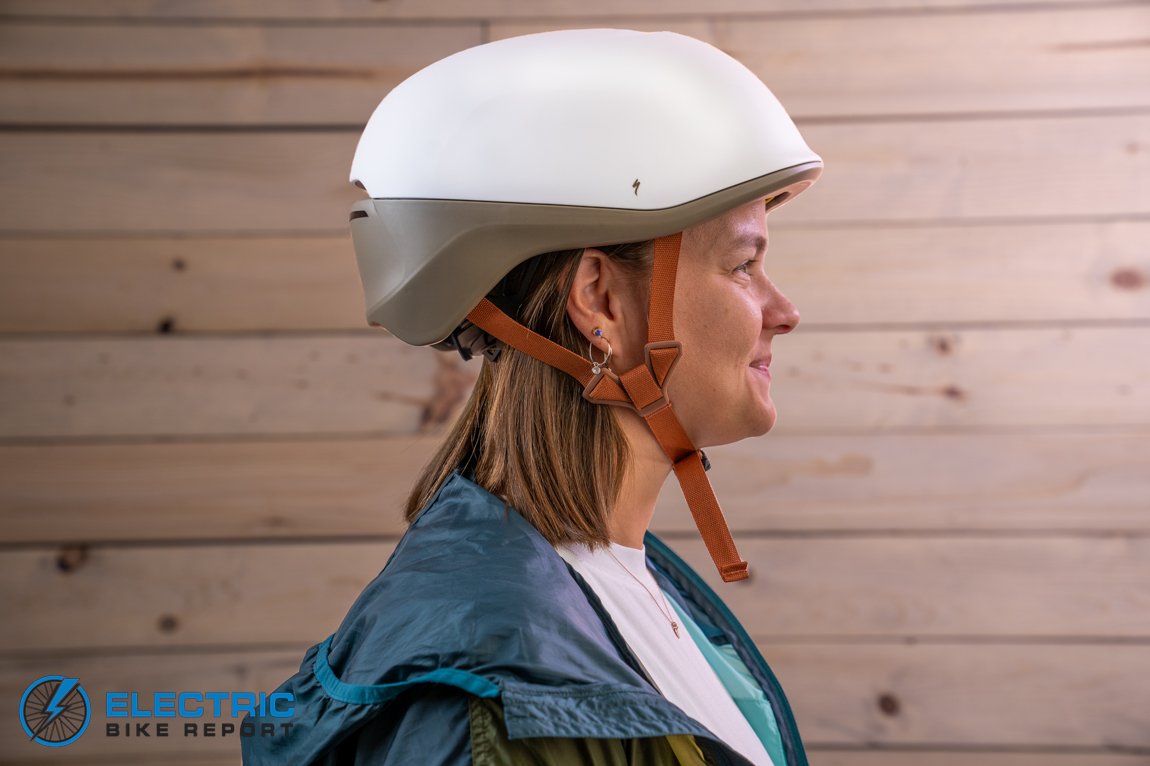
For those who want a lifeline in case they need it, Specialized now offers a crash sensor called ANGi that can contact someone in the event of an accident.
Fitting on this helmet is a simple, two-step process. Snug the occipital device and then adjust the chin strap, no more fiddling with how the straps fit around the ears; Specialized has designed the helmet so the straps can’t pass over the ears.
Specialized Tone Helmet Review: Comfort
It’s fair to wonder if the Tone has enough vents. The way the engineer designed the helmet air is not only drawn in through the top vent in the helmet, the helmet’s aerodynamics are such that air is pulled in via a channel in the front of the helmet so that air passes over the wearer’s forehead, resulting in a helmet far more comfortable in warm weather than it might seem at first glance.
Helmet pads are included for the rider’s comfort, rather than the rider’s safety, so when the adhesive holding one in place gives up the ghost, the change is immediately noticeable. One of the things we like about the Tone uses just three pads—one in the front and two along the top; fewer pads are easier to anchor.
MIPS liners have sometimes been criticized for snagging hair, making for an odd impetus to keep a helmet on. The Specialized Tone has but a handful of anchor points, which reduces the chance of an anchor catching hair.
Riders with long hair will appreciate the space between the bottom of the helmet and the occipital device, which is big enough to allow a ponytail or braid to pass comfortably.
Specialized Tone Helmet Review: Final Thoughts
Shopping for a helmet isn’t like shopping for a cool pair of shoes or a home theater. Helmets are about as sexy as the electric bill, but they are about as necessary as electricity (just ask those of us who have crashed hard).
The Specialized Tone is largely unremarkable. Thanks to its MIPS liner and CPSC certification, we know it’s as safe as any helmet in this price range, comes in enough sizes to fit most adults and has a fit system that isn’t fancy, but is effective. And as we’ve mentioned, it has a very low-key appearance.
Some products are most effective when they don’t call attention to themselves and that’s really the best thing about the Specialized Tone.
Sponsors
Reader Interactions
![]()
Source link



